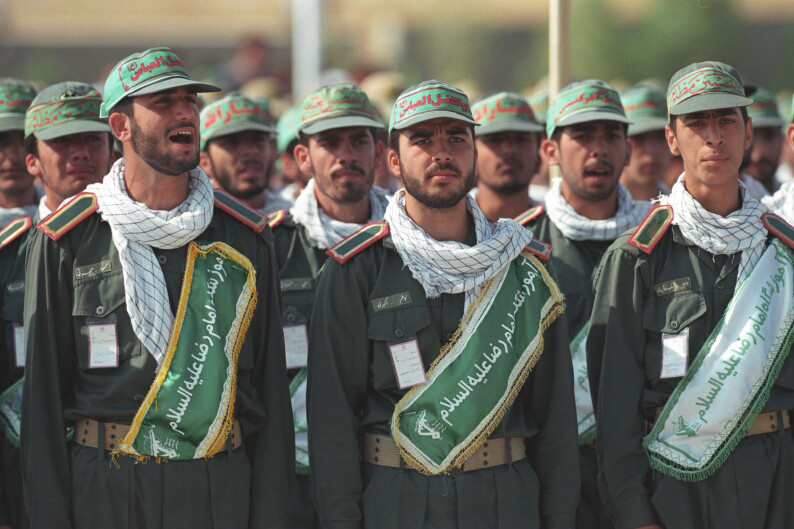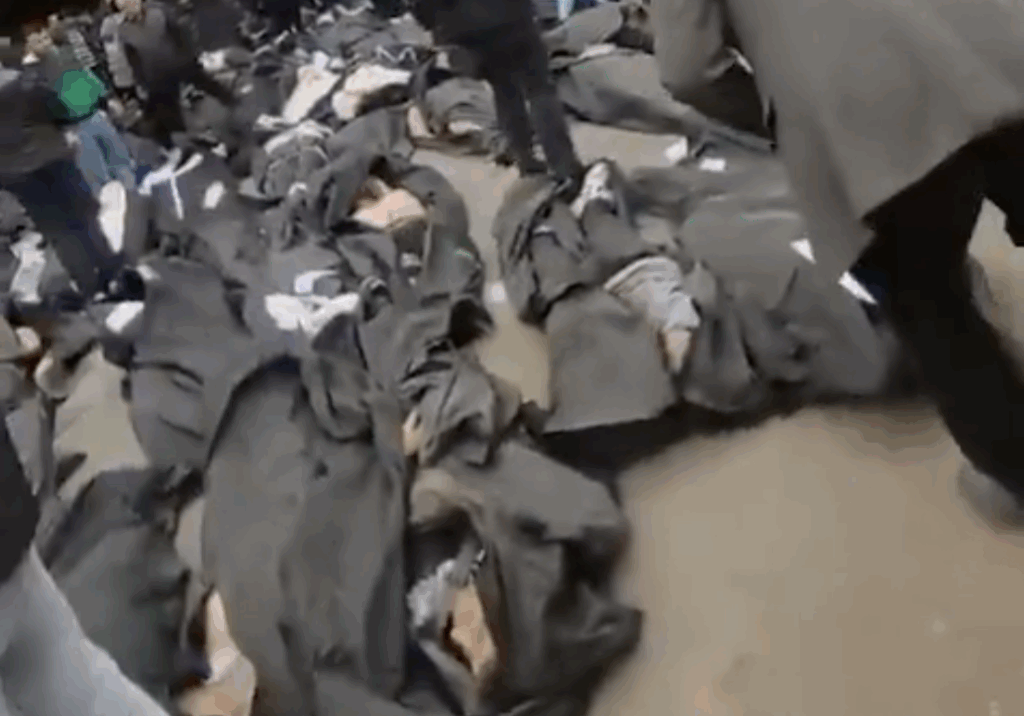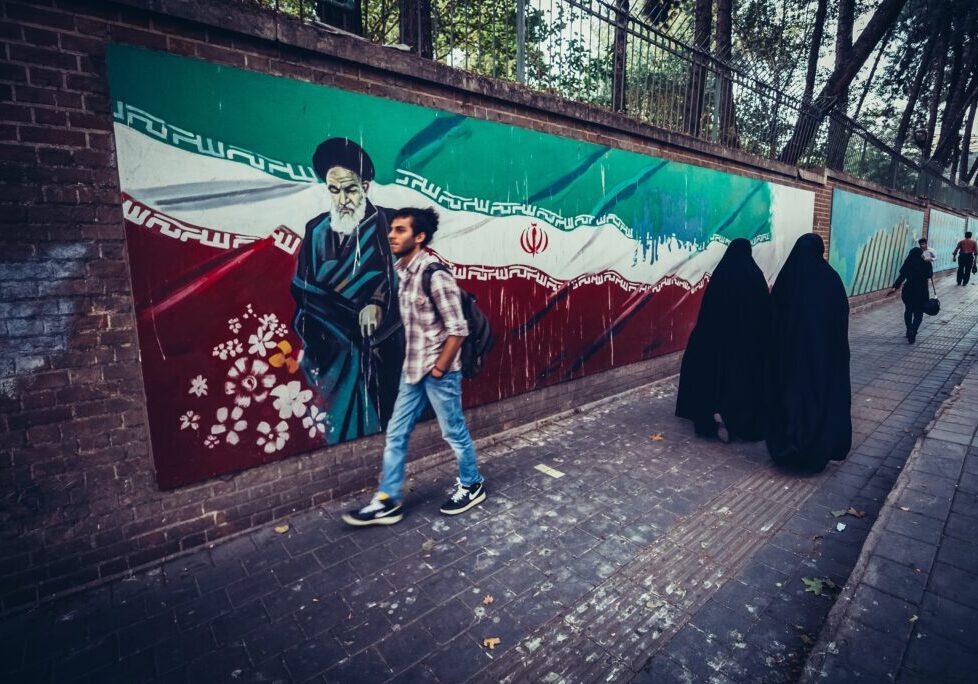Australia/Israel Review
Delisting the IRGC would be a boon for terrorism
Apr 4, 2022 | Jacob Nagel, Meir Ben-Shabbat

A US decision to remove Iran’s Islamic Revolutionary Guard Corps (IRGC) from its foreign terrorist organisations blacklist would not simply be a distortion of truth and adoption of a double standard regarding terrorism. Worse, it would be an American show of surrender to Iran and a reward to the main sponsor of terrorism in our time – a sponsor that sows chaos in the Middle East and the entire world, from Syria and Lebanon to Argentina.
Additionally, it would put spokes into the wheels of Israel and America’s other allies in the region, who deal with destructive terrorist plots daily, courtesy of the Revolutionary Guards.
Were it not for steps previously taken by the Biden Administration, one might suspect that the discussion of delisting the IRGC was a tactical move by Washington, designed to provide the Administration with an opportunity to refuse the request and assume an uncompromising stance toward Iran. Such a stance might help dull down the torrent of criticism aimed at it for surrendering to Teheran’s dictates on other issues in the nuclear talks.
Unfortunately, however, it is difficult to take such a possibility seriously when one recalls the words of Russia’s main negotiator in Vienna about the concessions Iran was able to extract from the US during the talks. Russia’s delegation head at the talks, Ambassador Mikhail Ulyanov, told Iranian media in early March that “Iran got much more than it could expect, much more… Realistically speaking, Iran got more than frankly, I expected or others expected.”
Moreover, a decision to remove the Revolutionary Guards from the blacklist does not seem far-fetched when remembering that one of the first decisions the Biden Administration made was removing the Houthis from the same listing only two days after they attacked Saudi Arabia. The Administration has also refrained from adding them back onto the list ever since, despite the fact that the Houthis have continued to conduct more attacks, this time against the United Arab Emirates.
In 2019, when then-US President Donald Trump decided to designate the Revolutionary Guards as a terrorist group, the White House explained that this move recognised a reality in which Iran not only funds terrorism but actively participates in it and uses it to advance its political goals via this body.
Then-Secretary of State Mike Pompeo, who was also familiar with the organisation’s misdeeds due to his previous work as Director of the CIA, said it best:
“For 40 years, the Islamic Republic’s Revolutionary Guard Corps has actively engaged in terrorism and created, supported, and directed other terrorist groups. The IRGC masquerades as a legitimate military organisation, but none of us should be fooled… From the moment it was founded, the IRGC’s mandate was to defend and export the regime’s revolution by whatever means possible… The Trump administration is simply recognizing a basic reality. The IRGC will take its rightful place on the same list as terror groups its supports [such as Hezbollah, and others.]”
The Revolutionary Guards was founded in 1979 by order of then-Iranian Supreme Leader Ayatollah Ruhollah Khomeini as a counterweight to the Iranian military – which he did not trust because of the American education its senior commanders had received and their previous closeness to the shah. It is organised and operates as a parallel military.
It has ground forces, air and space forces, a navy, a special force called the Quds Brigade, an intelligence arm and the Basij – a paramilitary volunteer militia that is used to maintain internal security and brutally oppress opponents of the regime. The IRGC also operates Iran’s ballistic missile arsenal.
The Revolutionary Guards serves not only as the main means of ensuring the survival of Iran’s clerical regime but as the main means to achieving its ambitious vision: to establish Iranian hegemony in the region and to spread the idea of the Islamic Revolution throughout the world.
The Quds Force is the main Iranian group that manages Iran’s terror and military proxies and Shi’ite militias outside the country. Its arms extend, among other places, to Iraq, Syria, Lebanon, the Gulf States, East Asia, Africa, South America and the Gaza Strip.
The US-led assassination of Quds Force chief Qassem Soleimani in early 2020 exposed to the world the scope of this organisation’s activities, and its great prominence in Iran.
The Quds Force has a special status within the Iranian regime that comes from the combination of its military, economic and political power, and its special closeness to the supreme leader. If Iran developed a nuclear weapon, it would most likely be kept and operated by the Quds Force.
Adding an organisation like the IRGC to the terrorist listing is not just a symbolic move. It is an essential means to delegitimise it, limit contacts with it and impose heavy economic sanctions on it.
Removing the Revolutionary Guards from the list will hence pave the way for an increase of its economic power, which it will then leverage into an increase of its military and political capabilities. All of this would happen following the signing of a new nuclear agreement – meaning at the same time when Iran will be gaining the release of billions of dollars into its coffers.
And what is Iran supposed to give in return for the IRGC delisting? Commit to “de-escalation”! And even with regards to that the Iranians are still bargaining over the content and characteristics of any such promise. In any case, there is no need to delve deeper into the questionable validity of any such Iranian promise.
To understand how much such a commitment is worth, it is enough to take a brief look at the logo of the IRGC that includes the Koranic verse (8:60) chosen as its motto: “Against them make ready your strength to the utmost of your power…” [the next phrase of that verse is “to strike terror into (the hearts of) the enemies, of Allah.” Ed.]






